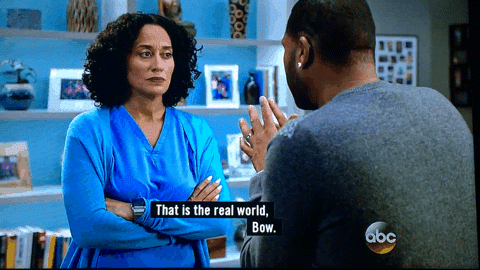| CLASSES | PROMPTS | INSTRUCTORS | CONTACT |


|
Prompts for the People We're changing things up a bit. Still free, but with a new name, more opportunities for engagement, and not always about TV. Why not give it a try?
Here's a quick sample of what you can expect: Opening a Closed World We've got a theory about a key difference in adult and children's storytelling--and for this prompt, you get to explore it!
The stories we write--whether they occur in a claustrophobic high school ecosystem, an undetected magical slipstream, or an open-plan office--have a world of their own. That world has a finite cast of characters, a menu of actions/reactions, and a sense of graspability. In children's/YA fiction, this world is rarely pierced by anything outside it. In adult fiction, however, the insular storytelling world is often punctured in a way that forces characters to grapple with their standard conflicts (even when those are standardly magical) AND manage emotions/complications from the outside. Compare the worlds of Harry Potter and Buffy the Vampire Slayer. No single Muggle event (geopolitical happening, human frailty) pierces the crescendoing battle between Dumbledore's Army and the Death Eaters. When Hermione sends her muggle parents away, it's touching, but rather than push at the characters, it prevents the worlds from colliding. However, in Sunnydale, Buffy's mother dies unexpectedly of an aneurism. Sure, the Scoobies deal with death all the time, but it's death by magic, not by natural causes. Their closed-off magical world exists within a bigger one, which has the potential to really screw things things up. (Buffy arguably began as teen/YA, but Joyce's death occurred in Season 5, when much of its viewership was aging into adult fare. I mean, not Angel or Spike, but the rest of us were aging.) Or look at Lemony Snicket's Series of Unfortunate Events. While there are wry hints at external elements for the sake of adult readers, the story itself keeps to the timeless steampunk amber of that world. But in Battlestar Galactica, a strike by refinery workers does interfere with facing down the Cylons, letting the every-world issue of workers' rights poke at the space world and the people in it. Prompt: Experiment with an intrusion from the outside world in a story you're writing. First, define for yourself what the insular world is--it's probably framed by/framing the central conflict. Consider how the greater world, the outer ring of your setting, could intrude. War breaks out. There's a hurricane. A character has a heart attack or faces deportation. See if you can make this event push your story in a meaningful way. (If you're writing for children, consider if you can use a ripple from the outside world to deepen a character or add texture, even if it doesn't significantly alter the storyline. In the world of Harry Potter, Rowling drew inspiration from U.S. politics of 2002 to 2005, crafting echoes of John Ashcroft in Dolores Umbridge, for example.) Recommended viewing and reading: Buffy 5:16 "The Body" (non-magical death); Deadwood 2:4 "Requiem for a Gleet" (kidney stone); Battlestar Galactica 3:16 "Dirty Hands" (refinery strike); West Wing 2:21 "18th and Potomac" (Mrs. Landingham!) and 2:22 "Two Cathedrals"; The Bold Type 1:09 "Before Tequila Sunrise" (Muslim ban); How to Get Away With Murder 4:15 "No One Else Is Dying" (DACA and deportation); Jane the Virgin 1:10 "Chapter Ten" (immigration); House of Lies 2:07 "The Runner Stumbles" and 2:08 "Wonders of the World" (racialized police brutality); Get Out. Reflection: External conflicts (sometimes called deus ex machina) can be useful but also feel gimmicky (a bit like the Kool-Aid man slamming in through the wall). Looking at your story, do you think it will make a difference if the "outside event" seems to simplify things or complicate them? It seems to us that the most compelling outside events should make problems--not solve them. But you may have other ideas. |
|
Minneapolis Storytelling Workshop is a project of professional writers Allison Wyss and Erin Kate Ryan. All rights reserved. |


